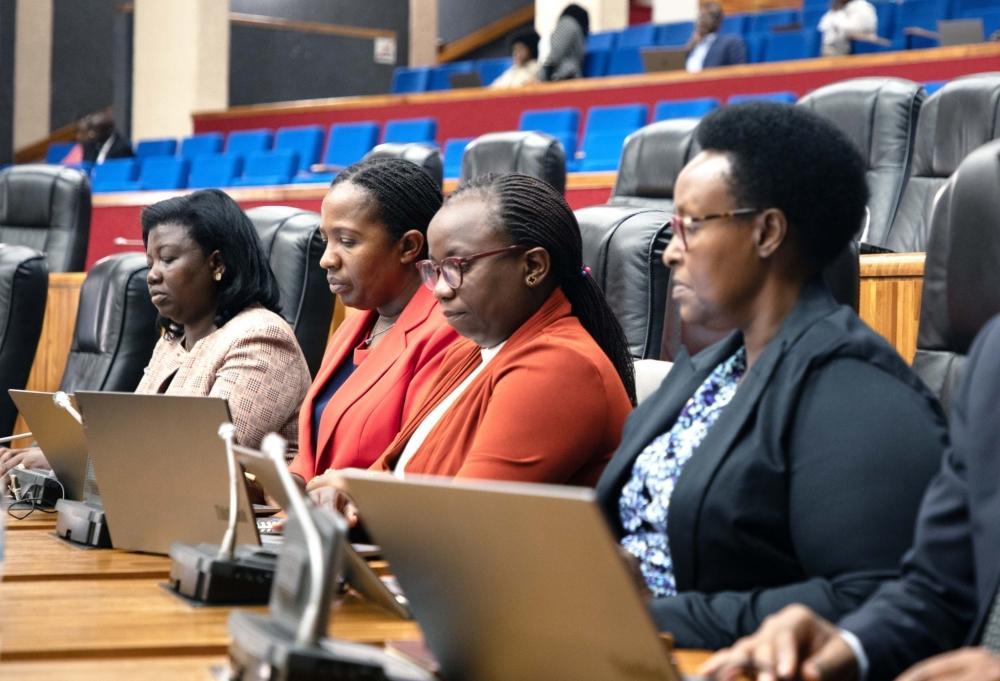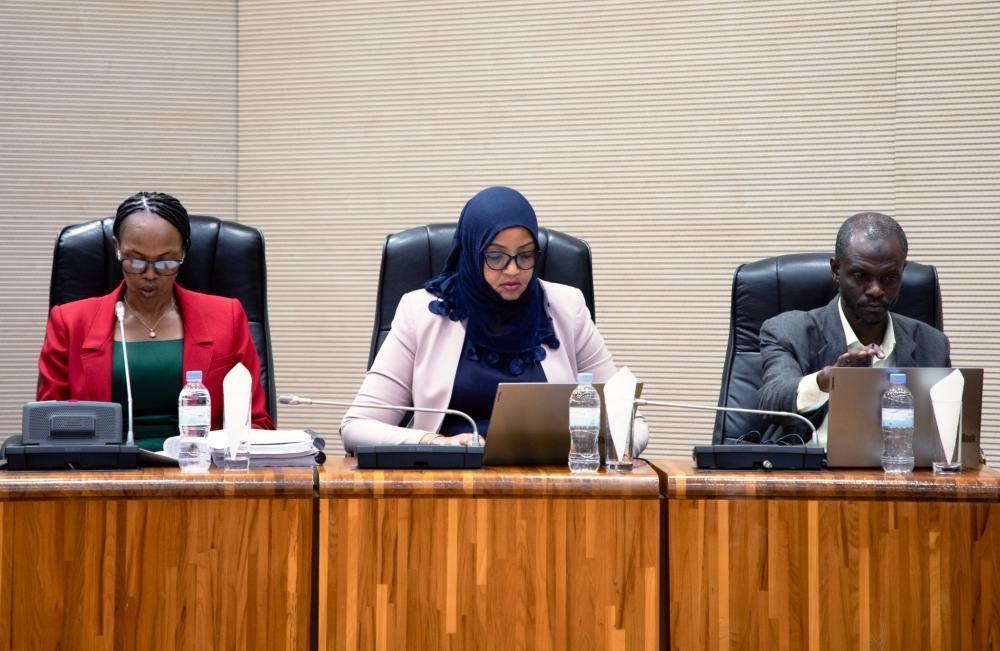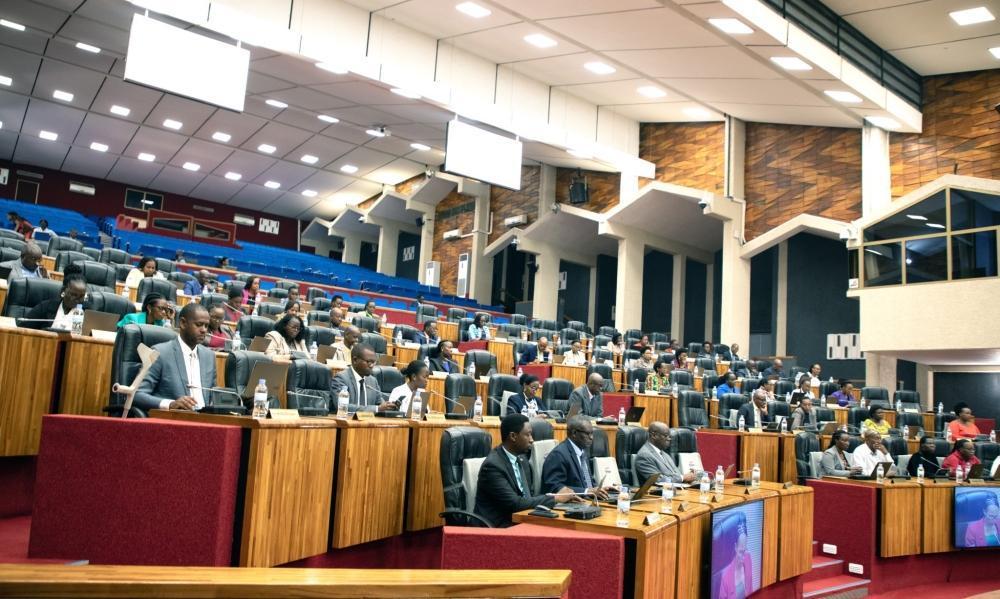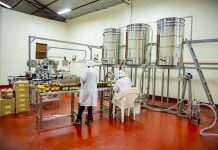Africa-Press – Rwanda. The Lower Chamber of Parliament on December 4 passed a bill governing biosafety, which aims to address the potential risks associated with genetically modified organisms (GMOs) – including crops (foods) and livestock – to protect biodiversity and preserve the integrity of the environment.
The purpose of the bill is to establish an adequate level of protection in the field of the safe transfer and use of living modified organisms, resulting from modern biotechnology that may harm the conservation and sustainable use of biological diversity and human health.
Genetically modified organisms, such as crops, are those that have gene(s) inserted from the same or unrelated organism using genetic engineering methods, according to the UN Food and Agriculture Organisation (FAO).
(L-R) Deputy Speaker Edda Mukabagwiza, Speaker Donatille Mukabalisa, and Deputy Speaker, Mussa Fazil Harerimana.
These genes, FAO says, confer beneficial traits such as pest resistance, the ability to grow in extreme and unfavourable conditions and increased nutrient levels among others.
The abovementioned draft law was scrutinised by the Lower House’s Committee on Land, Agriculture, Livestock, and Environment.
While presenting an analysis report of the bill, the committee chairperson, MP Marie Alice Kayumba Uwera, said that the draft law was initiated by the government with 34 articles grouped in six chapters, and by the time the committee started analysing it, there were 35 articles (also contained in six chapters).
In line with making the bill coherent, she said that six articles were approved by the committee without any amendment, five were removed from the bill, and 23 were amended – including 10 with drafting adjustments, and 13 with substantive amendments – while eight articles were added to it.
Of the removed articles, she cited article 7 related to biosafety committees at the institutional level.
“This article was removed because committee members realised that genetically modified organisms are substantial because they concern human health and must be monitored by a national-level committee provided for in Article 6,” she said.
Article 6 provides that a national biosafety committee is established to assist and provide expertise in reviewing applications. The committee also advises the authority in charge of environmental management.
Article 7 in question, proposed that a person who wishes to carry out contained use and confined field trials of GMOs operates under requirements set up by the Institutional Biosafety Committee. It added that the Institutional Biosafety Committee assesses and approves works classified as minimal risk and low risk approved, and provides a copy to the authority – which assesses and approves works involving a higher level of risk.
Again, Uwera said that Article 9 related to the application for a permit underwent a substantive amendment.
MPs resolved to remove the provision stating that the authority in charge of environment management consults the ministry in charge of health before issuing a permit for use, or the placement on the market of the living modified organism to be used for food or feed for human or animal consumption.
Underscoring the position, Uwera explained that it is because the criteria based on while granting a permit are examined by a national biosafety committee, in which the ministry in charge of health is also represented.
She pointed out that subsequent consultation with the ministry in charge of health would imply undermining the powers of the committee.
However, lawmakers maintained another provision of the same article (9) which states that a person who wishes to carry out any of GMO related activities referred to in the bill must apply for a permit issued by the authority.
On activities subject to the permit application, article 8 of the bill provides that they include contained use of a living modified organism, confined field trials of such an organism, intentional introduction of the organism into the environment, and its placement on the market for direct use as food, feed or processing.
The Lower Chamber of Parliament on December 4 passed a bill governing bio-safety, which aims to address the potential risks associated with genetically modified organisms (GMOs).
Other activities for which a permit is required are importing, transiting or exporting a living modified organism; handling, packaging, labelling, transporting or storing a living modified organism.
The adoption of the bill follows Rwanda’s accession to join the International Centre for Genetic Engineering and Biotechnology (ICGEB) on July 19, 2022.
ICGEB is dedicated to advanced research and training in molecular biology and biotechnology and advancing knowledge, applying the latest techniques in the fields of biomedicine, crop improvement, environmental protection/remediation, biopharmaceuticals, biopesticide and biofuel production.
For More News And Analysis About Rwanda Follow Africa-Press









